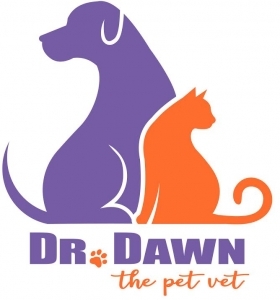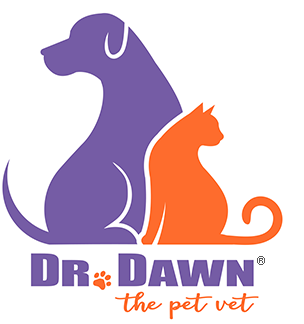A dog’s anal glands, or anal sacs, are actually small pouches located near the opening to the anus. They are located at 3 and 9 o’clock, respectively, just deep into the rectum. They produce oily secretions with a distinct odor, which enables dogs to “mark” their territory when they defecate. They also help them to identify other dogs based on their own unique scent. This also helps explain why dogs tend to sniff other dogs’ rear ends then they meet. Medically speaking, there are several medical conditions that can affect the health of the anal glands.
 Impaction is a condition in which the gland become clogged an cannot expel normally. This is the most common form of anal gland disease. Small breed dogs are more susceptible than large breeds. Yet, it can occur in any breed. Clinically, you may see dogs “scoot”, which involves dragging their hind ends along the ground. Malodor and frequent licking of the area are also common signs. Many clients describe the discharge as “teriyaki-like” in appearance. The odor is often described as that of “dead fish”, or “fishy”. Treatment involves manually squeezing the glands to expel the impacted contents. Only trained professionals such as veterinarians, veterinary technicians, or qualified groomers should manually express the glands. Dietary modifications, such as altering fiber intake, may decrease incidences of impaction for some dogs. Also, impaction of these glands may occur after a bout of diarrhea, which may be resolved after they are emptied and the stool consistency has returned to normal. In this instance, it is hopefully a temporary problem, not necessitating longterm changes in diet.
Impaction is a condition in which the gland become clogged an cannot expel normally. This is the most common form of anal gland disease. Small breed dogs are more susceptible than large breeds. Yet, it can occur in any breed. Clinically, you may see dogs “scoot”, which involves dragging their hind ends along the ground. Malodor and frequent licking of the area are also common signs. Many clients describe the discharge as “teriyaki-like” in appearance. The odor is often described as that of “dead fish”, or “fishy”. Treatment involves manually squeezing the glands to expel the impacted contents. Only trained professionals such as veterinarians, veterinary technicians, or qualified groomers should manually express the glands. Dietary modifications, such as altering fiber intake, may decrease incidences of impaction for some dogs. Also, impaction of these glands may occur after a bout of diarrhea, which may be resolved after they are emptied and the stool consistency has returned to normal. In this instance, it is hopefully a temporary problem, not necessitating longterm changes in diet.
 Infection with bacterial organisms, such as E. coli, can cause anal gland disease and lead to abscesses, and painful swelling of the tissue surrounding the glands. Fluid discharge and fever may also occur. Clipping and cleaning the area by a veterinarian is often recommended, in addition to flushing the glands, and the administration of antibiotics. Sometimes, allergies will be the underlying cause of this. If your veterinarian feels this is the situation, they may recommend further specific treatment for your pet.
Infection with bacterial organisms, such as E. coli, can cause anal gland disease and lead to abscesses, and painful swelling of the tissue surrounding the glands. Fluid discharge and fever may also occur. Clipping and cleaning the area by a veterinarian is often recommended, in addition to flushing the glands, and the administration of antibiotics. Sometimes, allergies will be the underlying cause of this. If your veterinarian feels this is the situation, they may recommend further specific treatment for your pet.
Cancer of the anal glands is possible and typically affects older dogs. A common sign is the dog straining to defecate. Treatment depends on the type of cancer and may involve chemotherapy, radiation therapy, or surgical removal of the anal glands.
There is no known prevention for anal gland disease. However, our veterinarian can help you establish the most effective treatment for your dog’s individual situation. Best not to ignore the signs and have your dog seen quickly. If left untreated, it can progress to a more severe form of disease, making it more complicated to treat it.
Dr. Dawn
Please share and subscribe here





